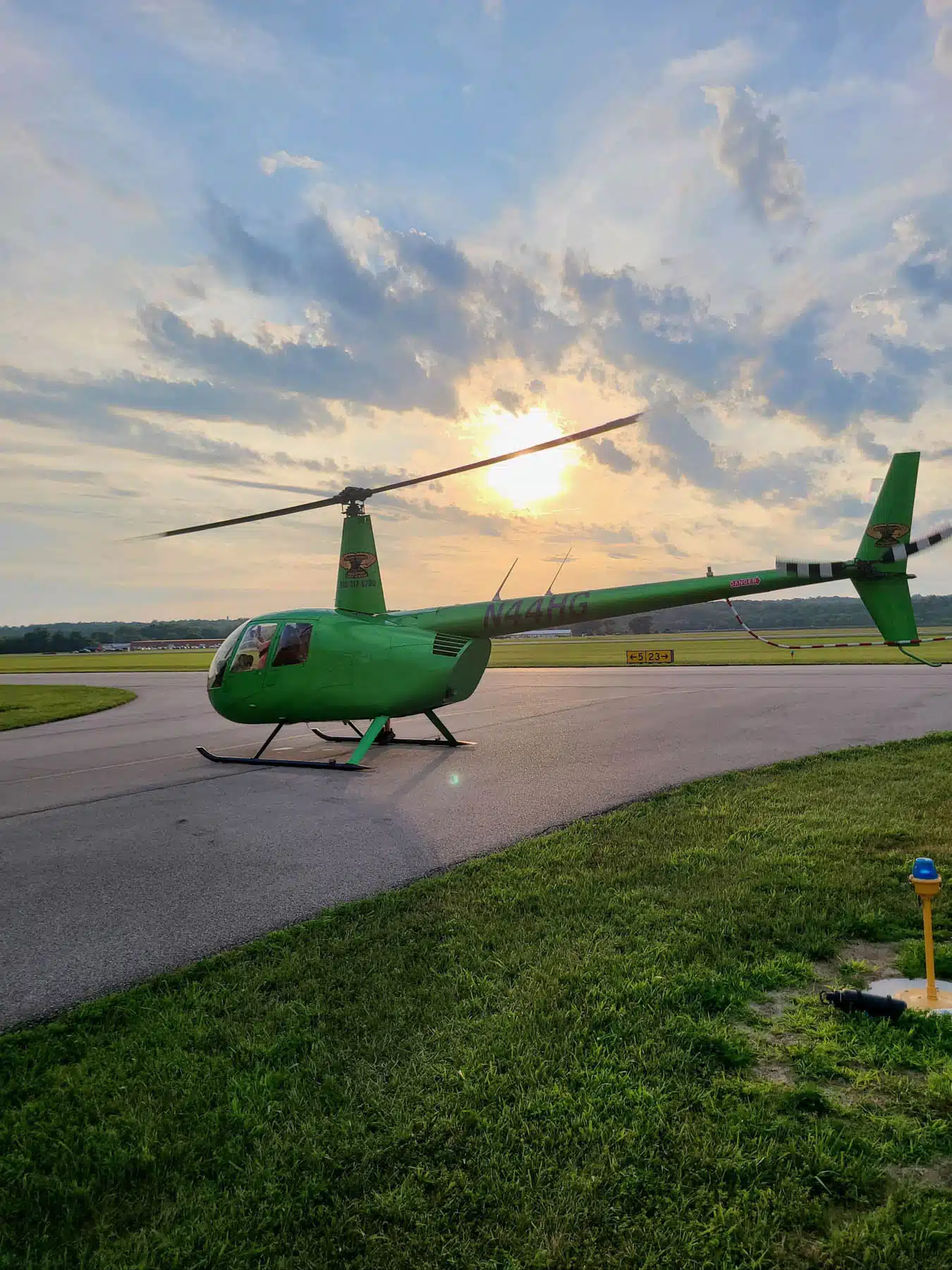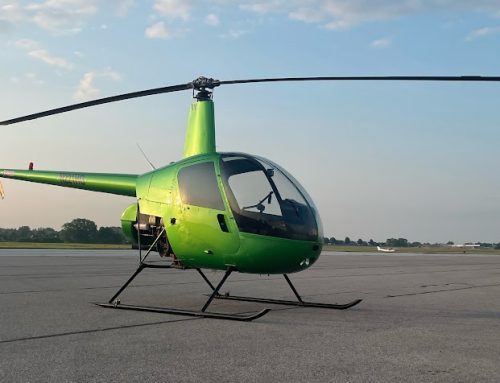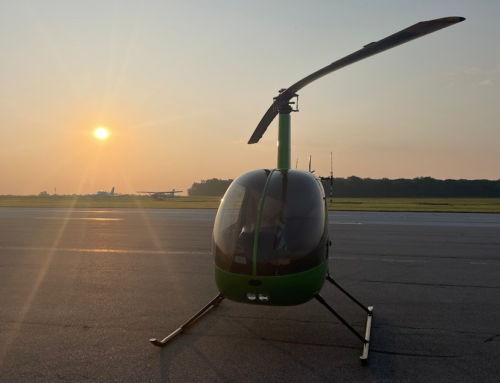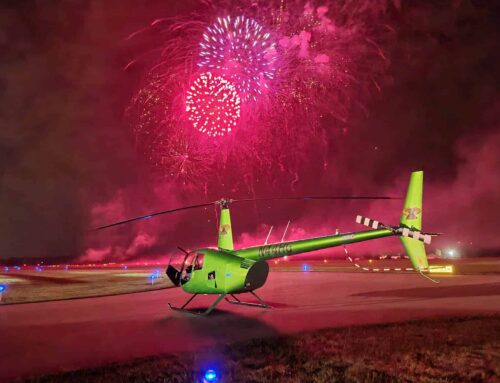According to ZipRecruiter, the average annual salary for a helicopter pilot in the United States is around $100,249 (about $48.20 an hour).
But this figure represents the mean earnings of a large group of pilots. So, how much do helicopter pilots make, and how does it vary depending on the path you choose? If you’re planning to pursue a career in this field, you’ll want to know the factors that affect pay.
The information can help you choose the right helicopter flying license and industries to target. Read on as this blog explores the main factors that affect how much helicopter pilots earn.
Type of License Held
Pilots with only a Private Pilot License (PPL) cannot fly for compensation, limiting their earning potential. Most people get this license to:
- Fly for recreation
- Learn basic flight skills
- Train for emergencies
- Fly friends and family
- Prepare for CPL training
A Commercial Pilot License (CPL) allows you to work for pay and opens more job options across various sectors. Earning an Airline Transport Pilot (ATP) license expands your opportunities even further, especially in high-paying and high-responsibility roles.
Choosing the right helicopter license early helps you avoid costly delays later in your career. Employers tend to favor pilots with advanced certifications, and your income will usually reflect that decision. Licensing is one of the most important pilot pay factors to consider when planning your aviation journey.
Geographic Location
Regions with high demand for pilots often offer better pay to attract skilled workers. States or countries with tough weather or risky flying conditions may also pay more. Some locations include housing, meals, or travel support to make jobs easier to fill.
Pay can also vary based on the cost of living in that area. Remote or offshore jobs often give extra benefits that add to your total income.
Helicopter pilot salary often changes between cities and rural areas. Before you try to find a job, check the average pay in the area you want to work.
Experience Level
Employers typically pay more to pilots with higher flight hours and a strong work history. Entry-level jobs usually come with lower pay but help you build flight experience. Common starting roles include:
- Tour pilot
- Flight instructor
- Utility support
- Aerial survey pilot
- Agricultural spraying pilot
As you build hours, better-paying roles become available across more demanding sectors. You may qualify for jobs in emergency medical services, offshore transport, or firefighting. Employers trust experienced pilots with complex missions and leadership tasks.
Aviation career earnings increase steadily once you pass key flight hour milestones like 1,000 or 2,000. With time, you unlock access to specialized roles, stronger job security, and improved working conditions.
Job Type
Some helicopter jobs pay more than others, depending on the work and training involved. Sightseeing tours, flight instruction, and news reporting often offer lower pay. Higher-paying roles include:
- Offshore oil transport
- Search and rescue
- Air ambulance flights
- Law enforcement support
- Firefighting missions
High-risk jobs may also include extra pay or bonuses to attract skilled pilots. Many of these roles require specialized training or knowledge of equipment.
Jobs in remote or dangerous areas may come with housing, meals, or travel support. Learning how a helicopter works can help you qualify for better jobs and prepare for more advanced responsibilities.
Seniority or Rank
Employers often reward loyal pilots with raises, more responsibility, and leadership roles over time. Ranking systems are common in large aviation companies, allowing pilots to move from junior roles to senior positions.
As you climb the ranks, your value increases and so does your pay. Senior pilots often enjoy:
- Better schedules
- Choice assignments
- Stronger negotiating power
- Access to advanced aircraft
- Priority during promotions
Over time, seniority gives you a strong edge when applying for top roles. It also helps you secure a higher helicopter pilot salary, especially in competitive job markets.
Employer Type
The size and type of your employer will affect how much you earn as a helicopter pilot. Large tour companies, private firms, and government agencies often pay more and offer stronger job support. Smaller companies may offer lower pay but can give you more freedom and faster growth.
Some private employers pay well for personal pilots, especially in charter work. Job security, health plans, and paid time off can also differ. Picking the right employer early can open up better helicopter job opportunities and help you grow faster in your career.
Additional Skills or Certifications
Extra certifications can raise your pay and help you move into better roles. Many employers want pilots with special skills for certain jobs. Common advanced skills include:
- Instrument flight training
- Mountain flying
- Night vision operations
- Long-line external load
- Low-level navigation
These skills make you a stronger candidate and may help you meet insurance or safety rules. To gain the right helicopter flying skills and knowledge, choose a trusted school likeHigher Ground Helicopters. We offer hands-on training, flexible programs, and degree options through Sinclair Community College.
Union Membership or Contracts
Being part of a union or working under a contract can affect both your income and job security. Union pilots often enjoy stronger protections, including:
- Regular pay raises
- Clear job expectations
- Scheduled time off
- Safer working conditions
- Grievance support
Union agreements often lead to steady career growth and fair treatment. Contract roles may offer higher short-term compensation but frequently come with fewer long-term benefits.
Pilots in non-union roles handle pay talks and job terms on their own, which can lead to uneven earnings. Union membership remains one of the most overlooked factors in pilot pay when planning for a stable and lasting career.
How Much Do Helicopter Pilots Make? Know Factors That Affect Earnings
So, how much do helicopter pilots make? Your salary depends on many factors, such as experience, job type, and location. The right training, license, and career path can lead to better pay and long-term growth.
At Higher Ground Helicopters, we bring over 20 years of experience in pilot training. We’re proud to be Ohio’s only FAA-approved Part 141 helicopter training school.
Our programs can boost your chances of landing a high-paying helicopter pilot job. Do you plan to get your helicopter flying license? Get in touch with us today to start your journey.









